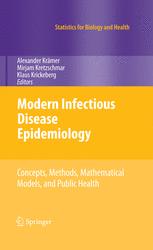

Most ebook files are in PDF format, so you can easily read them using various software such as Foxit Reader or directly on the Google Chrome browser.
Some ebook files are released by publishers in other formats such as .awz, .mobi, .epub, .fb2, etc. You may need to install specific software to read these formats on mobile/PC, such as Calibre.
Please read the tutorial at this link: https://ebookbell.com/faq
We offer FREE conversion to the popular formats you request; however, this may take some time. Therefore, right after payment, please email us, and we will try to provide the service as quickly as possible.
For some exceptional file formats or broken links (if any), please refrain from opening any disputes. Instead, email us first, and we will try to assist within a maximum of 6 hours.
EbookBell Team

4.1
80 reviewsHardly a day goes by without news headlines concerning infectious disease threats. Currently the spectre of a pandemic of influenza A|H1N1 is raising its head, and heated debates are taking place about the pro’s and con’s of vaccinating young girls against human papilloma virus. For an evidence-based and responsible communication of infectious disease topics to avoid misunderstandings and overreaction of the public, we need solid scientific knowledge and an understanding of all aspects of infectious diseases and their control.
The aim of our book is to present the reader with the general picture and the main ideas of the subject. The book introduces the reader to methodological aspects of epidemiology that are specific for infectious diseases and provides insight into the epidemiology of some classes of infectious diseases characterized by their main modes of transmission. This choice of topics bridges the gap between scientific research on the clinical, biological, mathematical, social and economic aspects of infectious diseases and their applications in public health.
The book will help the reader to understand the impact of infectious diseases on modern society and the instruments that policy makers have at their disposal to deal with these challenges. It is written for students of the health sciences, both of curative medicine and public health, and for experts that are active in these and related domains, and it may be of interest for the educated layman since the technical level is kept relatively low.
The authors are internationally renowned experts in the field of infectious disease epidemiology. The editors come from different scientific backgrounds but have been devoted to research in infectious disease epidemiology for many years. Alexander Krämer is an internist and epidemiologist who co-founded the first School of Public Health in the German-speaking region of Europe at the University of Bielefeld. Mirjam Kretzschmar is a mathematician and epidemiologist with many contributions to mathematical modelling of infectious diseases and its applications for public health. Klaus Krickeberg is a mathematician with background in health information systems in developing countries.